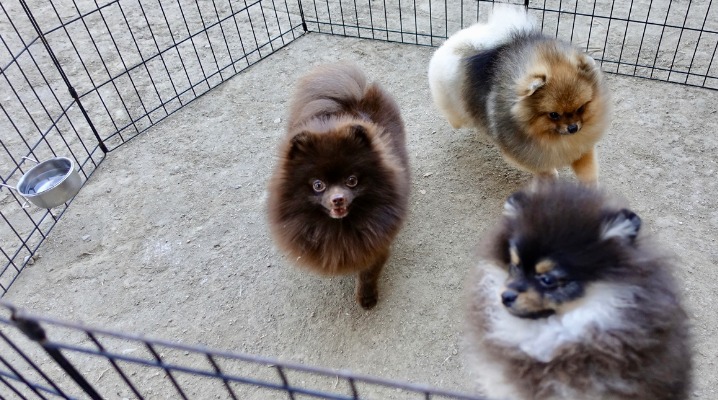
Protect Your Dog from These Harmful Kennel Illnesses
It’s not always possible to travel with your pup, which means, at one point or another, your dog will likely spend a few nights in a boarding facility. For the large part, boarding your pet can be a great experience; your dog gets the chance to socialize and have fun with other dogs and new people, and it will be well cared for in your absence.
Unfortunately, the downside to kennels is that they keep many dogs in one place, and there is no guarantee that every other dog in the facility is as healthy as yours. Therefore, there is always a chance that your dog could fall victim to one or more of a few common kennel illnesses.
If you’re boarding your dog soon, know the illnesses and their signs before you go to make sure your pup is well-protected.
Common boarding illnesses, infections and infestations
Although there is a chance your dog could come down with any number of illnesses after staying in a boarding facility, a few specific illnesses or infections are common in these settings due to their highly contagious nature and the dog’s close proximity to each other.
- Kennel cough: Perhaps most notorious for being spread in boarding facilities is kennel cough. This is an infection of the lungs, air passageways and trachea that causes a harsh, dry-sounding cough. Kennel cough can also cause difficulty breathing due to inflammation, sneezing and a runny nose. The illness is often caused by a combination of bacteria and viruses, including the bacteria Bordetella, and may require antibiotics to treat.
- Parvovirus: Parvovirus, or parvo, is a very contagious and serious disease caused by a virus. Parvo is most dangerous for young dogs but can be fatal for dogs of all ages. Parvo can lead to dehydration, bloody diarrhea, vomiting and a lack of appetite. The illness is most commonly spread through contact with infected feces and surfaces.
- Ringworm: Ringworm is an extremely contagious fungal infection of the skin. The infection causes small patches of inflamed, red skin, as well as hair loss and itching. It spreads through direct contact with an infected dog, as well as contact with infected bedding or surfaces. Ringworm can also spread between different animals and even humans.
- Fleas: Fleas don’t cause diseases themselves, but they can carry diseases that make your dog sick. However, even if they are not transmitting diseases, fleas can affect a boarding facility like wildfire, spreading from dog to dog and surface to surface rapidly and causing itching and skin irritation on every afflicted pup.
Disease prevention while boarding
Although certain diseases and infections are more common in boarding facilities, you don’t need to avoid ever checking your dog into a kennel for fear of health risks. Many boarding facilities are very clean and safe. Additionally, there are multiple ways you can help your dog stay healthy to avoid picking up any illnesses it may encounter.
- Pick the right facility: When planning to board your pup, make sure to do your research and choose a high-quality, clean and safe boarding facility. Always do a walk-through of the facility and ask lots of questions to make sure the facility is as sterile as possible. Additionally, make sure the facility requires vaccination records for the dogs and other animals that stay there; that way, you know that it is actively working to prevent disease outbreaks. You should consider these things for doggie daycare facilities, too, if your pup is enrolled in a daycare or socialization program.
- Get your dog vaccinated: When your dog is young, it should be given a full set of its “core” vaccines, which usually includes vaccinations for parvovirus, rabies and more. As your dog ages, you should make sure it is given booster shots according to your vet’s recommended schedule. There are also optional vaccines for things like kennel cough; if you plan to board your pup regularly, you might want to consider this vaccine to lower your dog’s chances of infection.
- Bolster your dog’s immune system: In kennels, dogs’ immune systems can suffer slightly due to the stress of a new location, new animals and a change in routine. This can make them more susceptible to catching an illness. Before boarding your dog, make sure you’re helping it be as healthy as possible by bolstering its immune system. Consider giving your dog immunity-boosting supplements, feed it a healthy, nutritious diet every day and give it plenty of exercise to keep its immune system in great shape.
Boarding your pup doesn’t have to end in illness. As long as you do your research to choose a safe facility and help your dog stay healthy through proper nutrition and illness prevention, it should return home as happy and healthy as before.



